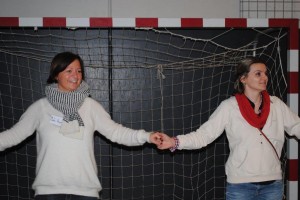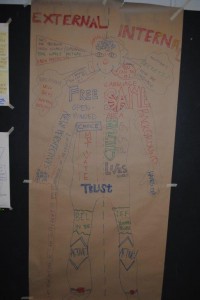The project: HEI Inter-Professional module – co-created by marginalized youth, practitioners and students is a three year project (2013-2016) funded under the Lifelong Learning Programme, ACTION ERASMUS MULTILATERAL PROJECTS .The project will be developed in collaboration between 5 universities and universities of applied sciences (HEIs) from five different countries and 4 local practitioners from each country with vast expertise in working with marginalized youth in practice. Furthermore, marginalized youth from these institutions will be involved in the development as well.
The number of marginalized youth is  growing in Europe. The partner consortium has found that the partner countries despite different welfare systems have the same problems finding solutions to “wicked problems” involving marginalized youth. Much research shows that “wicked problems” need to be solved by engaging all stakeholders: social workers and social pedagogues, students of social work/pedagogy and marginalized youth. It is therefore necessary for the students to practice collaborating with the other professions and engage with both marginalized youth and practitioners during their education.
growing in Europe. The partner consortium has found that the partner countries despite different welfare systems have the same problems finding solutions to “wicked problems” involving marginalized youth. Much research shows that “wicked problems” need to be solved by engaging all stakeholders: social workers and social pedagogues, students of social work/pedagogy and marginalized youth. It is therefore necessary for the students to practice collaborating with the other professions and engage with both marginalized youth and practitioners during their education.
The aim of the project is with a consortium including all relevant stakeholders to develop a flexible Module Concept to qualify students and staff to work innovatively, inter-professionally and inter-organisationally with “wicked problems” for the benefit of social work with marginalized youth. The project will develop:
• A Module Concept
• A Guide for Lecturers
• An Anthology to be used as teaching material
• A project website with free downloadable products
• A flyer presenting the project
Both HEI’s of the consortium and other HEI’s all over Europe will receive a well tested inter-professional and inter-sectoral module easy to implement in different educations. This will benefit students all over Europe. Social Services of the consortium and other Social Services in Europe will be able to influence what their future staff (current students) will learn during their education and current staff will develop new competences and skills and learn new solutions to wicked problems. Marginalized youth participating in the consortium and from other Social Service institutions will have direct influence on what future social workers/pedagogues learn during their studies and assure that the learning fits the needs of marginalized youth. The project will qualify social workers and social pedagogues to be able to work across sectors and professions as a team.

